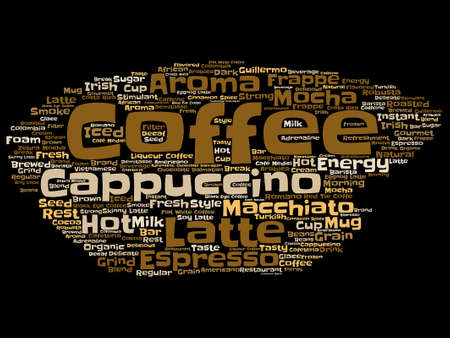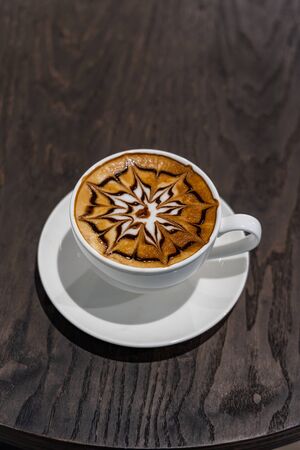Introduction: The Coffee Connection in India
Coffee is more than just a beverage in India; it is an emotion, a ritual, and a symbol that weaves itself into the very fabric of our daily lives. From the steaming filter coffee in South Indian homes to the trendy cafés of Bengaluru and Mumbai, the relationship Indians share with coffee is both intimate and evolving. This unique bond extends far beyond taste or refreshment—it reflects hospitality, tradition, and even artistic inspiration. Whether it’s sharing a cup during heartfelt conversations or using coffee motifs in art and décor, the symbolic presence of coffee permeates Indian culture in subtle yet profound ways. As we explore the artistic interpretation of coffee symbols in Indian culture, let us first appreciate how deeply this drink is connected to our identity and everyday experiences.
2. Decoding Coffee Symbols: Beyond a Beverage
In India, coffee is far more than just a beverage—it is a cultural emblem that resonates across various aspects of daily life, from lively family gatherings to the nuanced world of literature and films. The artistic interpretation of coffee symbols in Indian culture reflects the nation’s diversity and evolving social fabric. As we sip our strong filter kaapi or aromatic instant blends, we are participating in rituals that span generations and regions.
The Social Canvas: Coffee in Gatherings
Coffee acts as a bridge between people, fostering connection and warmth. Whether it is the early morning brew shared with elders or the late-night cup during adda sessions with friends, each scenario paints coffee as a symbol of hospitality and togetherness.
| Setting | Symbolic Meaning |
|---|---|
| Family Get-together | Unity, tradition, warmth |
| College Canteen | Youthful energy, new ideas |
| Workplace Breaks | Camaraderie, shared purpose |
Coffee in Indian Literature and Films
Indian literature often uses coffee as a motif representing introspection or emotional exchange. In South Indian novels, a steaming tumbler of filter coffee frequently anchors scenes of reflection or deep conversation. Bollywood and regional films also celebrate the chai-coffee divide; coffee shops are shown as modern-day addas where relationships blossom and stories unfold.
Symbolism Across Art Forms
- Poetry: Coffee becomes a metaphor for warmth, nostalgia, or longing.
- Cinema: Cafés serve as iconic backdrops for romance and drama.
Cultural Nuances in Symbolism
The symbolism attached to coffee varies by region. In Tamil Nadu, the ritualistic preparation of filter coffee represents love and attention to detail within families. In metropolitan cities like Bengaluru or Mumbai, trendy cafés symbolize aspiration and cosmopolitan identity. Thus, every cup tells its own story—woven into India’s artistic tapestry.

3. Regional Flavours and Artistic Expressions
India’s relationship with coffee is as diverse as its languages and landscapes. Each region brings its own artistic interpretation to the humble cup, blending local customs, crafts, and a dash of desi flair. In the South, especially in Tamil Nadu and Karnataka, the iconic filter kaapi is not just a beverage; it is an experience steeped in tradition. The stainless steel tumbler and dabarah set, often adorned with intricate engravings or traditional motifs, transforms the act of serving coffee into a miniature ritual. Local artisans sometimes hand-paint these vessels or use temple-inspired designs, making each kaapi session a celebration of both taste and artistry.
Meanwhile, in urban metros like Mumbai, Bengaluru, and Delhi, trendy cafés are reimagining coffee culture with a contemporary twist while still nodding to Indian aesthetics. From wall murals inspired by Madhubani art to latte art depicting paisley patterns or peacocks, these cafés blend global coffee trends with indigenous creativity. Some even host live painting sessions or feature rotating exhibits by young Indian artists, turning coffee shops into vibrant cultural spaces.
The flavours too reflect regional artistry: you’ll find spiced blends using cardamom in Hyderabad, chicory-infused brews in Chennai, or cold-brew concoctions infused with kokum or jaggery in Goa. Each flavour is more than just a drink—it’s a canvas that showcases the local palate and creative spirit. This beautiful intermingling of art and coffee across India not only preserves cultural identity but also sparks new inspiration for modern interpretations.
4. Coffee and Indian Rituals
Coffee in India is not merely a beverage; it is an emotion that beautifully weaves itself into the fabric of daily rituals and traditions. Across diverse Indian states, coffee acts as a symbol of togetherness, extending its warmth from bustling urban homes to tranquil villages. When guests arrive, offering a cup of freshly brewed filter coffee is more than courtesy—it is an expression of Indian hospitality, or what we lovingly call Atithi Devo Bhava, meaning ‘the guest is god’. Whether shared at dawn in Tamil Nadu’s traditional brass tumblers or during evening addas in Karnataka, coffee serves as a gentle thread binding families and friends.
Family gatherings often begin with the aroma of coffee, setting the mood for heartfelt conversations and laughter. It is common to find elders sharing stories over steaming cups while children listen with eager curiosity. In many households, serving coffee marks the start or end of important ceremonies—be it weddings, festivals like Pongal or Diwali, or even housewarming functions. The act signifies goodwill and blessings for all present.
Friendship also finds its muse in the humble cup of coffee. College students in Chennai or Hyderabad cherish their ‘coffee dates’ at local cafes, where bonds are strengthened and dreams are discussed late into the night. Coffee houses have historically been intellectual hubs—a space for artists, poets, and thinkers to exchange ideas.
The following table illustrates the symbolic role of coffee in key Indian social settings:
Occasion |
Cultural Significance |
|---|---|
| Family Gatherings | Represents unity, tradition, and generational bonding |
| Festivals & Ceremonies | Blessings, hospitality, sharing joy with community |
| Friendships | Nurturing relationships, encouraging open conversations |
| Welcoming Guests | Sign of respect and honouring visitors (Atithi Devo Bhava) |
This artistic interpretation of coffee’s symbols reveals how deeply it is interwoven into Indian culture—bringing people together, fostering warmth, and echoing the nation’s vibrant spirit of hospitality.
5. Modern Interpretations: Coffee in Contemporary Indian Art
In today’s rapidly changing India, coffee has become more than just a beverage—it is a lifestyle statement and a source of inspiration for the creative community. Modern Indian artists and designers are embracing the symbolism of coffee in their work, reimagining its cultural significance through various artistic mediums. From bustling metropolises like Mumbai and Bengaluru to the hip cafés of Delhi and Pune, coffee motifs have found their way into paintings, digital art, fashion, and even street murals.
Paintings with a Desi Flavour
Contemporary painters often use coffee cups, beans, or steaming pots as metaphors for urban life, connection, and relaxation. Artists like Shilo Shiv Suleman and contemporary collectives experiment with earthy tones reminiscent of filter coffee, blending traditional Indian elements—such as mandalas or paisley patterns—with modern coffee imagery. This fusion creates visual narratives that resonate with both nostalgia and current urban sensibilities.
Digital Art: Brewing Innovation
Young digital artists are taking inspiration from India’s growing café culture, using platforms like Instagram to showcase quirky illustrations and animations featuring coffee symbols. Memes about “chai vs. coffee” debates or relatable moments at Indian coffeehouses (like Café Coffee Day or Indian Coffee House) have become part of daily conversations among millennials and Gen Z. These visuals celebrate not only the drink itself but also the social rituals surrounding it.
Coffee in Pop Culture & Design
Designers are incorporating coffee-inspired motifs into everything from home décor to T-shirt graphics. The sight of a kullad (earthen cup) filled with frothy South Indian filter kaapi is now as iconic as Bollywood posters in pop art circles. Cafés commission local artists to create wall art that reflects the warmth of Indian hospitality combined with the cosmopolitan vibe of modern cities. This trend highlights how coffee continues to inspire creativity across design disciplines.
The artistic interpretation of coffee in contemporary India is a beautiful testament to how tradition meets innovation. By weaving together cultural heritage and new-age expression, modern artists ensure that coffee remains not just a drink but an evolving symbol of identity, aspiration, and togetherness in Indian society.
6. Conclusion: The Blended Essence of Coffee in Indian Culture
The artistic interpretation of coffee symbols in Indian culture is a fascinating blend of tradition, creativity, and evolving social trends. Over generations, coffee has transcended its role as a mere beverage to become a meaningful part of India’s cultural tapestry. From the iconic filter kaapi served in South Indian households to contemporary café culture buzzing in cities like Bangalore, coffee’s presence is both nostalgic and modern. Artists draw upon this duality—depicting coffee not only as a drink but also as a symbol of warmth, intellectual exchange, and communal belonging. Each cup tells a story: of heritage, hospitality, and innovation. As India continues to embrace global influences while cherishing its roots, the motifs of coffee in art reflect this harmonious fusion. Ultimately, coffee’s enduring impact on Indian life and identity lies in its ability to unite people across regions, generations, and backgrounds—reminding us that some symbols are timeless, continually reimagined through the creative lens of India’s vibrant culture.


